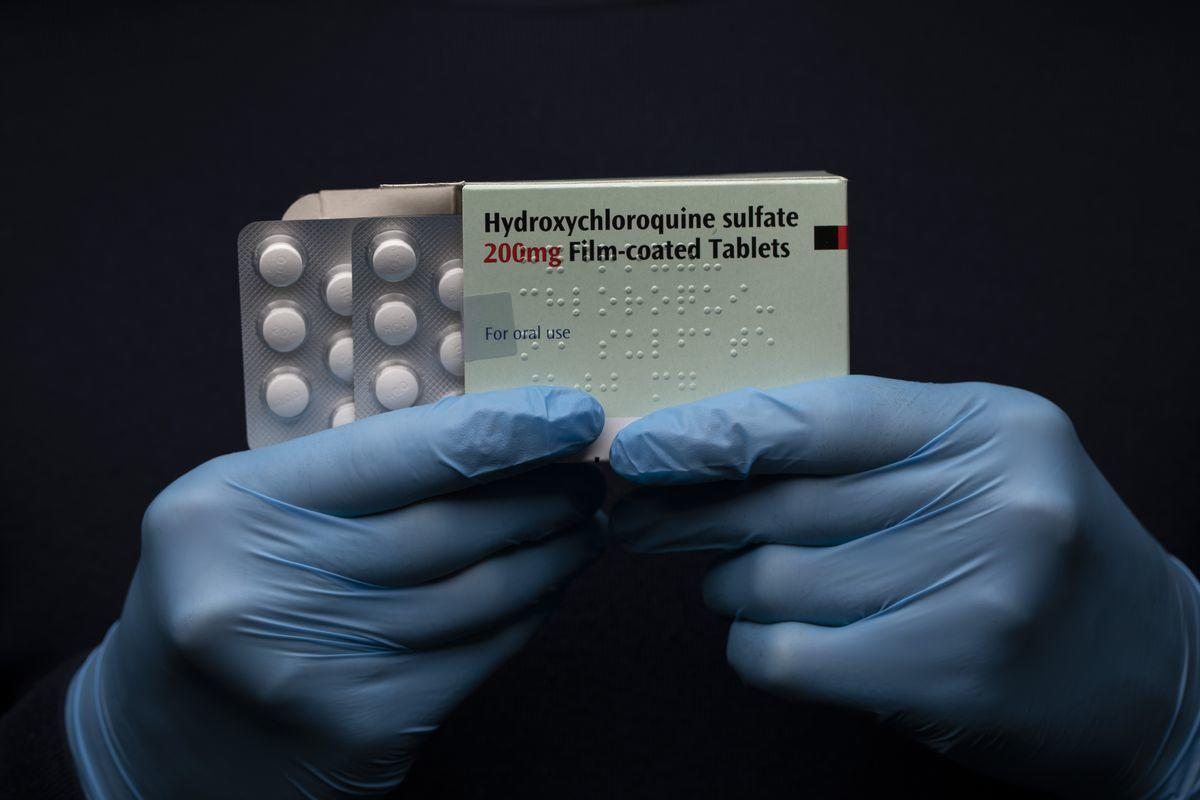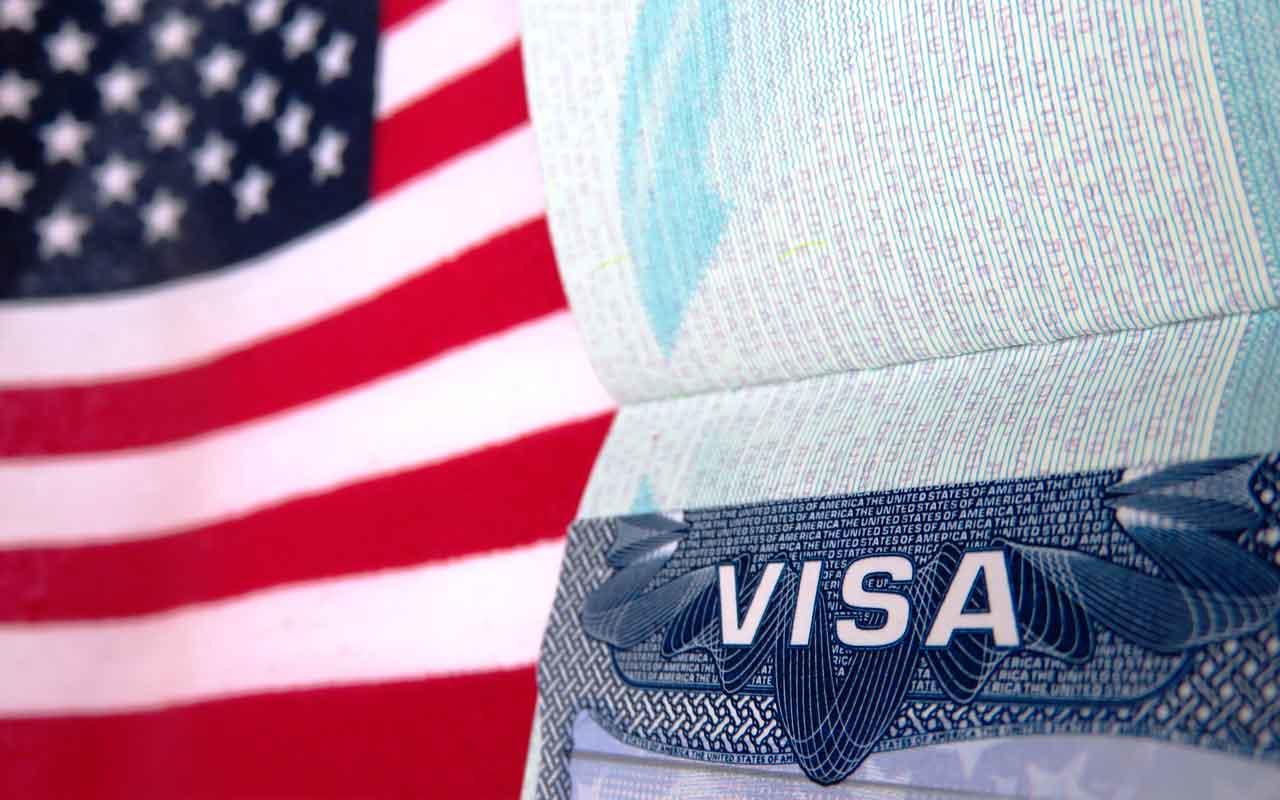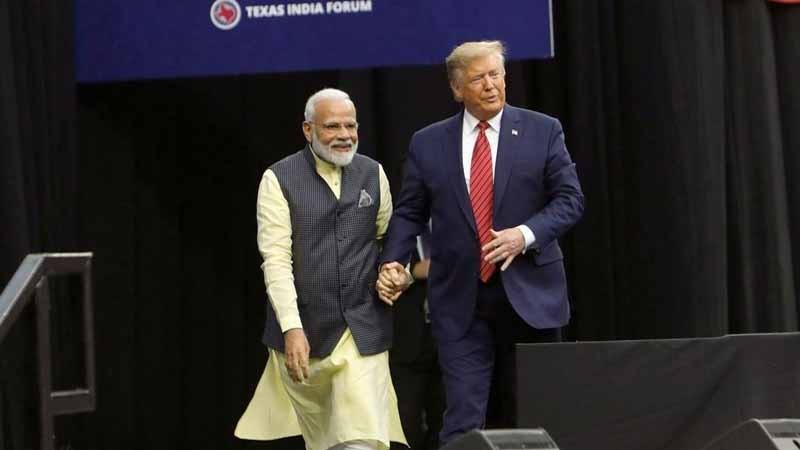Worker Visas For Hydroxychloroquine: India Demands Quid Pro Quo To Export Tump’s ‘Miracle’ Drug
One of India’s leading newspapers has reported that President Trump’s much-touted ‘miracle’ coronavirus drug cocktail hydroxychloroquine, which is produced in large amounts in India, is being used by Prime Minister Narendra Modi to negotiate Indian workers’ continued ability to access employment in the United States.
It seems it’s a classic and perhaps foreseeable clash of Modi’s “India First” vs. Trump’s “America First” after New Delhi previously placed an export ban on the pill, given India is trying to contain its own COVID-19 outbreak now threatening 1.3 billion people. The popular popular Hindustan Times reported late last week of the developing quid pro quo situation:
The Indian government has asked the US to extend the validity of visas, including H-1B and other types of visas, held by Indian nationals who have been hit by the Covid-19-related economic slump, people familiar with developments said on Friday.
Foreign secretary Harsh Shringla took up the matter during his telephone conversation with US deputy secretary of state Stephen Biegun on Wednesday, when the two sides also discussed ways to enhance cooperation to counter the pandemic and ensure the availability of essential medicines [hydroxychloroquine] and equipment.
The timing is extremely sensitive, given India relies heavily on wealth earned by “Non-Resident Indians” in the US – yet at a moment tens of thousands are being forced back home amid the broader coronavirus employment crush and companies furloughing employees.
Trump in an April 4th phone call with Modi made clear America’s needs in the escalating virus lockdown emergency: “They make large amounts of hydroxychloroquine — very large amounts, frankly,” Trump told reporters of the call.
“They had a hold [on exports], because, you know, they have 1.5. billion people, and they think a lot of it. And I said I’d appreciate it if they would release the amounts that we ordered,” Trump described.
Modi was swayed, apparently, as days later he approved the export of many hydroxychloroquine pills, temporarily lifting the ban.

Thus naturally New Delhi expects Washington to play ball now, as India’s Economic Times voiced late last week:
Congress chief spokesperson Randeep Surjewala said after compromising the “India First” policy in the HCQ drug climb-down, the government is again failing to secure the safety and livelihood of Indians in the US.
“Time for the prime minister to ensure that our soft power of ‘Namaste Trump’ converts into fair treatment of H-1B visa holders in the US,” Surjewala said, noting that the US has put Americans on a temporary paid leave or allowed them to work for reduced hours in the wake of the pandemic.
But “the sword of H-1B visa job terminations” looms large over an estimated 75,000 Indians, with the United States giving them only a 60-day period to find a new job in case of a lay off, he said.
It’s unclear the degree to which Modi himself made the appeal directly to the administration, but it remains that “India’s Congress is demanding that India’s Narendra Modi use his control over the hydroxychloroquine supply to protect the nation’s huge population of well-paid visa workers in the United States.”
So it appears Trump’s long-term ‘America First’ principles – seen regarding India in his prior March 2016 vow to end many American Fortune 500 companies’ reliance on the H-1B visa and the cheap labor it often provides – may have to be compromised to keep the more immediately vital hydroxychloroquine supply going.
It’ll be interesting to see if Modi pivots to playing hardball. Possibly, New Delhi’s parliament demands have already been articulated forcefully as linked directly to the vital potentially life-saving medicine behind the scenes.
Tyler Durden
Sun, 04/12/2020 – 22:35
via ZeroHedge News https://ift.tt/2xoDtaU Tyler Durden

